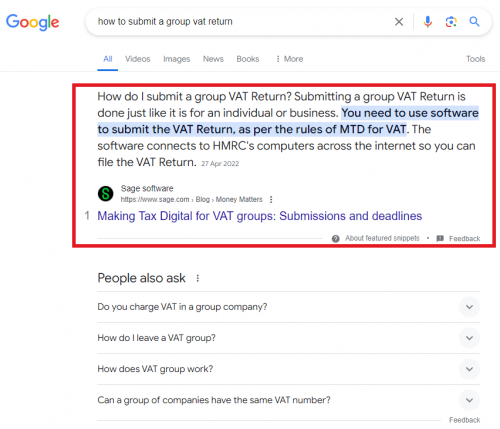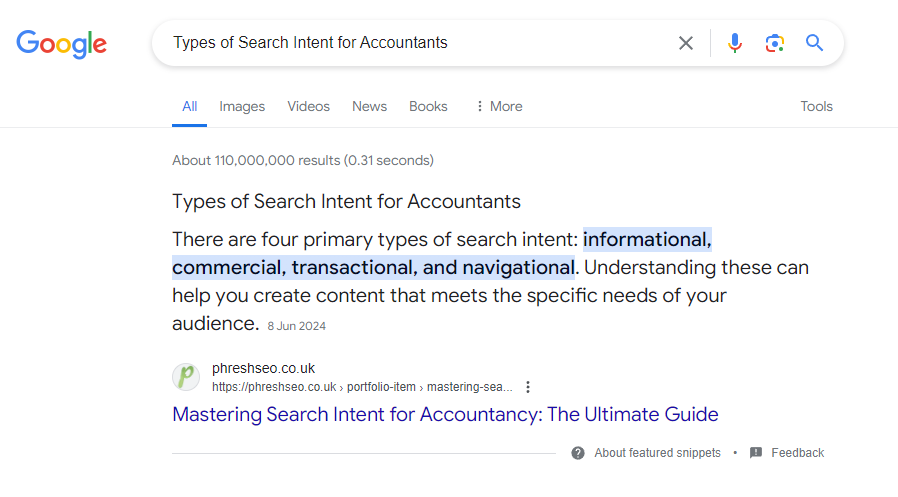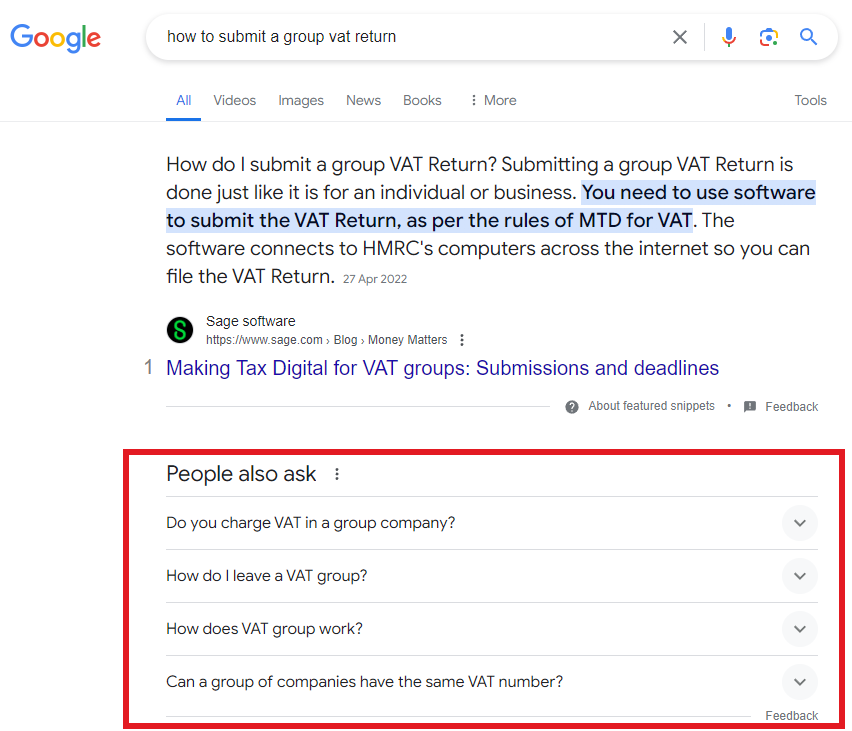
Mastering Search Intent for Accountancy: The Ultimate Guide
June 13, 2024Unlocking the Power of Voice Search: Strategies for Optimising Accounting Content

The rapid rise of voice search has caught many people off guard, especially in the world of services like accounting, so it's the perfect time to take advantage of this and jump ahead of the competition.
In a world where most people are set in their ways, moving quick and moving smart will always get you ahead.
The rise of voice assistants has revolutionised the way people search for information. From Siri to Alexa, these intelligent virtual assistants have become an integral part of our daily lives. As a result, businesses need to adapt their content strategies to ensure they can be found and heard in this new era of voice search. In this article, we will explore the implications of voice assistants for accounting content and provide strategies for optimising your content to stay ahead in the voice revolution. From conversational keyword research to featured snippets optimisation, we will uncover the secrets to unlocking the power of voice search for your accounting business.
DID YOU KNOW
of people use voice search regularly
The Rise of Voice Assistants: Implications for Accounting Content
The rise of voice assistants has significant implications for accounting content. Voice assistants, such as Amazon's Alexa, Apple's Siri, and Google Assistant, have become increasingly popular in recent years, changing the way people search for information. With the convenience of hands-free operation and the ability to provide instant responses, voice assistants are transforming search behaviour and shaping the future of content consumption.
For accounting professionals and businesses in the industry, this shift in search behaviour means that traditional SEO strategies may need to be adapted to cater to voice search queries. As voice assistants rely on natural language processing and conversational queries, it is crucial to understand how people ask questions when using voice search. This requires a shift from traditional keyword research to conversational keyword research, focusing on understanding the specific phrases and questions users are likely to ask. By identifying these conversational keywords, accounting content can be optimised to align with users' natural language queries, increasing its chances of appearing in voice search results.
Additionally, featured snippets optimisation becomes crucial in securing prime positions in voice search results. As voice assistants often read out featured snippets as the top answer, optimising content to appear in these snippets can significantly increase visibility and drive traffic to accounting websites.
In summary, the rise of voice assistants necessitates a new approach to optimising accounting content, focusing on conversational keyword research and featured snippets optimisation to stay relevant in this changing landscape.
Below is an example of a featured snippet we gained from our recent post "Mastering Search Intent for Accountancy: The Ultimate Guide". For this particular post, we gained the featured snippet for all of the below terms by thoroughly researching the topic and answering the questions which needed to be answered well:
- Search Intent For Accounting
- Why Search Intent Matters For Accountants
- Types Of Search Intent For Accountants
- Commercial Intent For Accountants
- Informational Intent For Accountants
- Transactional Intent For Accountants
- Navigational Intent For Accountants
- Determining Search Intent For Accountants
All of those search terms had competition of over 100 million pages, some over 240 million and we got those featured snippets with this domain, which is only 2 months old. Imagine what we could do for yours?

Conversational Keyword Research: Understanding How People Ask Questions

In the era of voice search, understanding how people ask questions is crucial for optimising accounting content. Traditional keyword research focused on short, concise phrases that users typed into search engines. However, with the rise of voice assistants like Siri and Alexa, search queries have become more conversational and natural. This shift in search behaviour requires a new approach to keyword research.
To uncover the right conversational keywords, it is important to think like your target audience. Consider the questions they may ask when seeking accounting information or services. Tools like Google's "People Also Ask" feature can provide valuable insights into common queries related to accounting topics. By analysing these questions, you can identify the language patterns and structure your content accordingly.
Long-tail keywords also play a significant role in conversational keyword research. These are more specific phrases that mimic how people naturally speak. For example, instead of searching for "accounting software," users may ask, "What is the best accounting software for small businesses?" Incorporating long-tail keywords into your content can help align with user intent and increase visibility in voice search results.
Additionally, understanding the context behind these questions is essential. Users often expect immediate answers from voice assistants. Therefore, providing direct and concise responses in your content can enhance its voice-friendliness and improve chances of being featured as a snippet in voice search results.
Conversational keyword research allows accountants and financial professionals to tailor their content to match the way people ask questions through voice search. By adapting their strategies to this new future, they can ensure their content remains relevant and accessible to a growing number of voice assistant users.
DID YOU KNOW
of 25-49 year olds speak to their voice-enabled devices at least once per day
Featured Snippets Optimisation: Securing Prime Position in Voice Search Results
In the era of voice search, securing a prime position in search results has become even more crucial for businesses, including accounting firms. One effective strategy to achieve this is through featured snippets optimisation.
Featured snippets are concise summaries that appear at the top of search results, providing users with direct answers to their queries. These snippets are particularly important for voice search, as virtual assistants often read out the featured snippet as the answer to a user's question.
To secure a prime position in voice search results, accounting content needs to be optimised for featured snippets. This involves understanding the types of questions users are asking and structuring content in a way that provides clear and concise answers.
Conducting thorough conversational keyword research can help identify the specific questions users are asking and provide insights into how to optimise content for featured snippets.
Additionally, content creators should focus on creating well-structured and informative paragraphs that directly answer these questions. By aligning with the natural language queries of users and providing valuable information, accounting content can increase its chances of being featured as a snippet in voice search results.
Optimising for featured snippets not only improves visibility but also enhances the credibility and authority of accounting firms in the eyes of potential clients who rely on voice assistants for quick and accurate information.
Creating Voice-Friendly Content: Aligning with Natural Language Queries
As voice search continues to grow in popularity, it is crucial for accounting content creators to align their strategies with the way people naturally ask questions.
Unlike traditional text-based searches, voice queries are often longer and more conversational in nature. This means that accounting content needs to be optimised to cater to these natural language queries.
To achieve this, it is important to understand the specific phrases and sentence structures that people commonly use when asking questions related to accounting topics. By conducting conversational keyword research, content creators can gain insights into the exact phrases and language patterns that their target audience uses during voice searches.
Once these conversational keywords have been identified, firms can then incorporate them strategically throughout their accounting content. This includes using these keywords in headings, subheadings, and within the body of the text.
Additionally, it is important to write in a way that mirrors natural conversation and provides clear and concise answers to common accounting questions. By doing so, content creators can ensure that their material is easily understood by voice assistants and provides valuable information to users.
In conclusion, creating voice-friendly content involves aligning with natural language queries.
This requires conducting conversational keyword research to understand how people ask questions related to accounting topics. By incorporating these keywords strategically and writing in a conversational tone, accounting content can be optimised for voice search, ensuring that it ranks highly and provides valuable information to users.
The Importance of Structured Data for Voice Search Success
Structured data plays a crucial role in achieving success in voice search.
As voice assistants become increasingly popular, it is essential for accounting content to be easily understood and interpreted by these devices.
Structured data provides a framework for search engines to comprehend and categorise information more effectively. By implementing structured data markup, accounting websites can provide explicit details about their content, such as the type of content, its purpose, and relevant entities.
This enables search engines to present more accurate and relevant results to voice queries. For example, by using schema markup, an accounting firm can specify its address, phone number, and operating hours, making it easier for voice assistants to provide accurate information when users inquire about the firm's contact details or working hours.
Additionally, structured data helps in creating rich snippets that are displayed prominently in voice search results. These snippets provide concise answers to users' queries, increasing the chances of attracting their attention and driving traffic to accounting websites.
Furthermore, structured data enhances the overall user experience by enabling voice assistants to provide more interactive and personalised responses. For instance, by incorporating structured data for frequently asked questions (FAQs), accounting firms can ensure that voice assistants deliver comprehensive and concise answers to users' inquiries. In conclusion, incorporating structured data into accounting content is vital for achieving success in voice search. It not only helps search engines understand the context and relevance of the content but also enhances the user experience by delivering accurate and personalised responses.
IN 2023
of web browsing sessions were screenless.
Voice Search SEO: Adapting to Changing Search Behaviour
As voice assistants become increasingly popular, it is crucial for accounting professionals to adapt their SEO strategies to cater to changing search behaviour. Voice search differs from traditional text-based searches in several ways. Firstly, voice searches tend to be longer and more conversational in nature. People are more likely to ask complete questions when using voice search, rather than typing in fragmented keywords. This means that accounting content needs to be optimised for conversational keyword phrases, focusing on how people naturally ask questions.
Furthermore, voice search often relies on featured snippets for providing answers. Featured snippets are the concise summaries that appear at the top of search engine results pages. When voice assistants read out search results, they often rely on these snippets for quick and accurate information. To secure prime position in voice search results, accounting content should be optimised for featured snippets by providing clear and concise answers to common questions.
In addition to optimising for conversational queries and featured snippets, structured data plays a vital role in voice search success. Structured data provides context and additional information about a webpage's content, helping search engines understand the content better. By implementing structured data markup such as Schema.org, accounting professionals can improve their chances of appearing in voice search results.
To adapt to changing search behaviour and stay ahead in the voice revolution, accounting professionals must prioritise voice search SEO strategies. This includes understanding how people ask questions through voice assistants, optimising content for featured snippets, and implementing structured data markup. By embracing these strategies, accountants can unlock the power of voice search and ensure their content remains relevant and discoverable in an increasingly voice-driven world.
THE NUMBER OF VOICE SEARCH USERS IN 2023 WAS
Future-proofing Your Accounting Content: Staying Ahead in the Voice Revolution
In order to stay ahead in the voice revolution, it is crucial for accounting content to be future-proofed.
As voice search continues to gain popularity, it is important for accounting firms and professionals to adapt their content strategy accordingly. One key aspect of future-proofing accounting content is to optimise it for voice search.
This involves understanding the changing search behaviour of users and adapting content to align with natural language queries. Accounting firms should focus on creating voice-friendly content that is conversational and easily understandable by voice assistants.
Additionally, featured snippets optimisation plays a vital role in securing prime position in voice search results. By structuring content in a way that provides concise and relevant answers to common accounting questions, firms can increase their chances of being featured as a top result.
Another important factor in future-proofing accounting content is the use of structured data. By incorporating structured data markup on their websites, accounting firms can provide search engines with more context about their content, making it easier for voice assistants to understand and retrieve information.
Finally, staying up-to-date with voice search SEO best practices is essential for long-term success. As technology and search behaviour continue to evolve, it is important for accounting professionals to adapt their strategies and keep pace with the latest trends. By taking these steps to future-proof their accounting content, firms can ensure they remain visible and relevant in the voice revolution.
As the power of voice search continues to grow, accounting professionals and content creators must adapt their strategies to stay relevant in this voice revolution. Understanding the rise of voice assistants and the implications for accounting content is crucial for success. Conducting conversational keyword research and optimising for featured snippets will help secure prime positions in voice search results.
Creating voice-friendly content that aligns with natural language queries is essential, as is implementing structured data to improve search visibility. Voice search SEO is a dynamic field that requires continuous adaptation to changing search behavior. By future-proofing accounting content and staying ahead in the voice revolution, businesses can position themselves as leaders in their industry.
As we move forward, it is important to reflect on the potential challenges and opportunities that arise from this shift towards voice search, and how they will shape the future of accounting content.
EVERY MONTH, MORE THAN
voice searches are made
FAQ's
1. How can accounting firms optimise their content for featured snippets?
To optimise content for featured snippets, accounting firms should focus on providing clear and concise answers to common questions related to their industry. This involves structuring content in a way that directly addresses these queries, using well-formatted paragraphs and bullet points.
Additionally, conducting thorough conversational keyword research can help identify the specific questions users are asking and tailor content accordingly.
2. What is the importance of conversational keyword research in voice search optimisation?
Conversational keyword research is crucial for optimising accounting content for voice search. Unlike traditional text-based searches, voice queries are often longer and more conversational in nature.
By understanding the specific phrases and sentence structures people use when asking accounting-related questions, firms can incorporate these conversational keywords into their content, aligning it with natural language queries and increasing visibility in voice search results.
3. How can structured data help improve voice search performance?
Implementing structured data markup, such as Schema.org, can significantly improve an accounting firm's performance in voice search. Structured data provides context and additional information about a webpage's content, helping search engines and voice assistants better understand and interpret the information. This can lead to more accurate and relevant results being displayed in voice search queries.
4.What are some strategies for creating voice-friendly accounting content?
To create voice-friendly accounting content, firms should focus on writing in a conversational tone that mirrors natural language queries.
This involves using the conversational keywords identified through research and providing clear, concise answers to common questions.
Additionally, incorporating structured data and optimising for featured snippets can enhance the content's voice-friendliness and improve its chances of being featured in voice search results.
5. How can accounting firms future-proof their content for the voice revolution?
To future-proof their content for the voice revolution, accounting firms should prioritise voice search SEO strategies. This includes conducting ongoing conversational keyword research, optimising content for featured snippets, implementing structured data markup, and staying up-to-date with the latest voice search best practices.
By adapting their strategies to align with changing search behaviour, firms can ensure their content remains relevant and discoverable in an increasingly voice-driven world.

The best place to hide a dead body is the second page of Google.
After years of experience in larger agencies, we noticed a significant gap in the market for smaller companies and startups that didn't have a massive budget to allocate towards SEO. Many SMEs and startups understand the importance of SEO but find the barrier to entry too high.
Free SEO Audit
Get in touch now for a free audit for your website. We offer free advise on how you can gain the most visibility for your website, even if you choose not to come on board moving forward.

